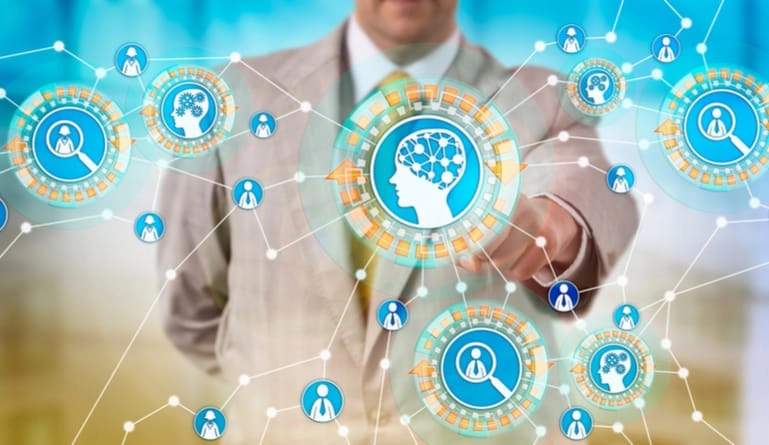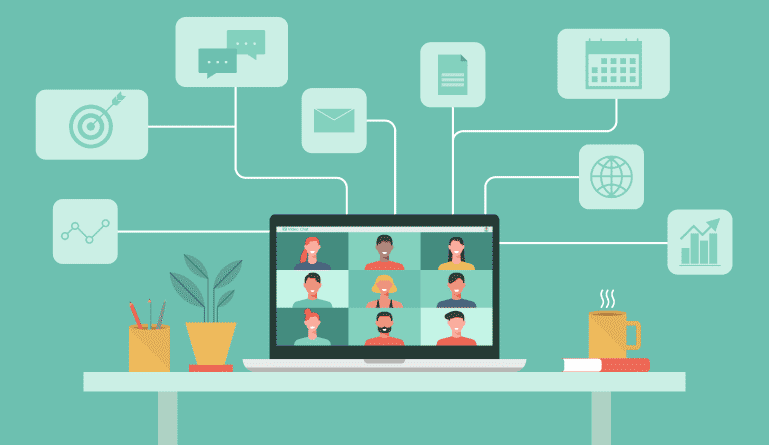Artificial intelligence, known to most by two letters – AI, has already changed how companies run frequent reports, create products and services, and interact with customers. From online customer chatbots to smart technology devices, businesses have taken fast hold of AI and begun to make it work for them in ways that improve their business strategy and customer relationships.
Artificial intelligence has also affected several areas of internal business, from marketing to business development and from finance to human resource management and talent acquisition. From automation to smart recruiting to onboarding, AI has already started to shape HR processes in many new ways.
Does AI have the potential to change human capital management systems?
What you should know about the impact of artificial intelligence in human capital management.
Human capital management continues to see AI affect its processes in several ways. Here are some of the changes that AI has brought into the realm of human capital management systems.
Reduced Bias
Employers can go through all kinds of training and understand the best practices for reducing bias, but unconscious bias can affect anyone. Whether it’s during hiring or employee evaluations, more businesses are becoming aware of the dangers of unconscious bias in their processes. AI technology can work throughout the whole human capital management process to help reduce bias. While AI is developed by people who have a bias, the program itself can run strictly through data input, without regards to anything else. This makes it much easier to have impartiality in hiring and review management and create outcomes that are based on skills, experiences, and other pieces of data rather than any other information that might influence or bias a person.
Greater Pay Equity
In addition to reducing bias in personnel decisions, AI can access data from disparate places and create analytics and reporting options to help businesses make educated and fair compensation offers and pay increases. While most HR teams and executive leadership understand compensation trends and need to align industry standards with their budgets, AI can keep them quickly and accurately in touch with changes in the industry that would affect compensation decisions.
Better Employee Insights
People are the most valuable and most expensive resource a business has. This is why employees are sometimes referred to as “human capital” because of the value they bring to an organization in both driving revenue and creating an overall brand.
Retaining the talent that comes into an organization is extremely important, as hiring can be expensive and time-consuming, with recruitment time plus the time it takes to train and onboard new employees. Retention is much easier with employee feedback, allowing employees to say what matters to them in the workplace not only gives them a feeling of control and investment in the company (making them more likely to stay), it also gives businesses actionable ways to create change that in turn keeps their talent on board. AI offers a way to gather and analyze both solicited and unsolicited employee data that can help create better retention rates for businesses.
Improved Training
Customization and personalization are at the heart of every modern customer experience. They are also important to your employee experience. AI has the potential to change training in human capital management systems by offering custom or personalized training to employees. By gathering information on an employee’s interests, skills, career level, and goals, AI programs may be able to make recommendations about not only what kind of training to offer employees; as technology develops, AI may one day have the ability to create training programs for individuals and teams based on corporate business goals and personal professional goals.
These are just some of the ways that AI can work to improve the processes of human capital management and the systems that are developed and used in human resource departments. The benefits help to create a more employee-focused workplace that helps to deliver on what employees want and need to feel supported. This helps businesses and stakeholders because it gives employees the best foundation possible to do their greatest work.




